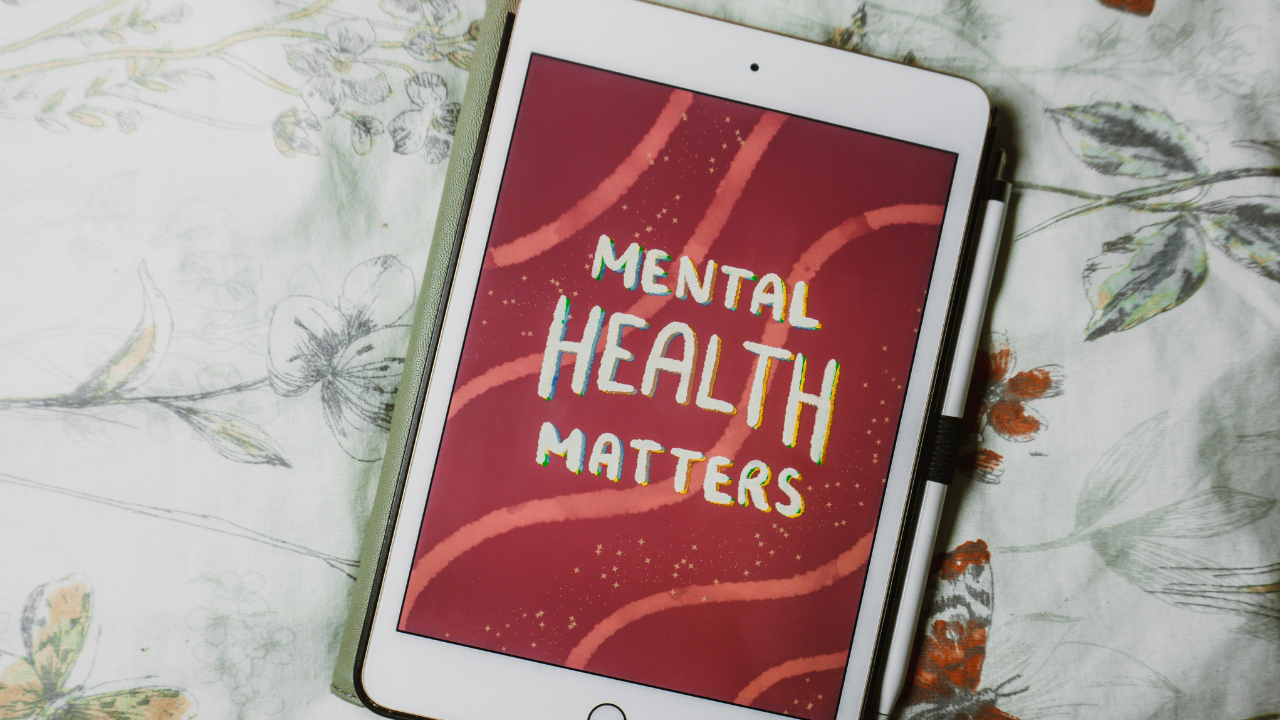Living with Chronic Illness: 5 Things No One Tells You

Have you ever met someone living with a chronic illness or chronic pain? Someone you know may immediately spring to mind, or perhaps you are dealing with a chronic disease or in constant pain.
It’s not an easy road. From personal experience, I know what it’s like to struggle with daily pain. A car accident left me with neck and back pain issues accompanied by migraines. Fast forward ten years, and then I get slapped with an autoimmune disease that impacts my gut/colon.
What do you do when you feel like your health issues are running the show? First, to navigate these challenges, you want to feel like you have some say-so in your health management. But if you have been in the chronic illness camp for any time, you know that there is no shortage of people giving you advice. And if that wasn’t enough, there are things that no one ever really tells you about when living with a scary diagnosis.
Let’s explore those and the world of chronic illness that can leave you feeling confused, frustrated, overwhelmed, and bloody exhausted, regardless of if you’re the patient or a concerned loved one.
What is Chronic Illness?
Chronic illness is a diagnosis that lasts longer than one year. It means you need ongoing care from medical professionals and that your illness may impact your day-to-day life. According to the CDC, 6 out of 10 adults have a chronic disease. Yikes!
Examples of chronic illnesses are cancer, heart disease, lung issues, stroke, diabetes, Alzheimer’s, and kidney diseases. And climbing the charts are those who suffer from autoimmune diseases such as Rheumatoid Arthritis, Chron’s and Ulcerative Colitis, Multiple Sclerosis, Graves’ Disease, Addison’s disease, Hashimoto’s, and the list goes on.

What is Chronic Pain?
According to John Hopkin’s Medicine, pain can be acute or chronic. Acute pain comes from an immediate injury or surgery; however, it only lasts for a few weeks. On the other hand, chronic pain is physical pain that can last longer, for months or even years.
Chronic pain can be from a health diagnosis such as arthritis, cancer, fibromyalgia, or triggered by a traumatic event like a car accident. This type of pain can impact one’s ability to do basic things like work, eat, do physical activity, and enjoy life. In addition, the cumulation of all these factors can negatively affect your emotional, mental, and spiritual health.
Is Chronic Illness Considered a Disability?
A question often raised is if chronic diseases are considered a disability. First, let’s look at the word disability: “a physical or mental condition that limits a person's movements, senses, or activities.”
It stands to reason that chronic diseases can be considered a disability depending on how it’s impacting your body. But this must be determined on a case-by-case basis. For example, if two people have the same diagnosis, their symptoms may differ for each person.
To know if you qualify for a disability, you can check out the Social Security Administration’s requirements for disability. There is a ton of information here, so you may want to look at it with someone you trust or when you have plenty of time to do some research, as it can otherwise be overwhelming.
Why is Coping with a Chronic Illness Difficult?
You or a loved one may be wondering why managing a chronic illness is so difficult. Unfortunately, that’s a fair question.
What if you met someone who was sick all the time? You could see them lying in their bed, or maybe they had other visible signs of “proof” that they were indeed sick.
On the other hand, what if you met someone who says they have a chronic illness or pain, but you can’t visibly tell the difference just by looking at them on the street?
They don’t really seem sick. So, you wonder. Are they for real? Are they faking it? Are they being a baby and can’t tolerate pain? Why don’t they suck it up and get over it?
These questions are normal. And the typical advice for these questions is just to power through, take your medicine, exercise more, eat better, be positive, pray more, meditate, and the list could go on and on with “helpful” tips from medical professionals and other well-meaning people. But the issue is that it’s not that simple.
You or a loved one may attempt to cope in various ways. Coping is "dealing effectively with something difficult." Although this definition paints "coping" as a picture of positivity, most people do not realize their coping mechanism is usually a short-term band-aid to make them feel better in the moment. It can start as an innocent and healthy habit; however, it can quickly turn negative if it's in excess.
For example, work in and of itself is a good thing. It puts food on the table and a roof over your head. But when you use work to avoid difficult emotions and start working 60 hours a week (even on weekends), it can become an addiction. That's what happened to me. Work addiction is legit, and it's something I must remain aware of even now. You can read further about my journey here.

How Chronic Illness Affects a Person Psychologically?
Mental health is more than a popular buzzword. And when you are battling a chronic illness, it’s like you’re on an unpredictable and never-ending rollercoaster ride filled with twists and turns that leave you with emotional whiplash. Your diagnosis and the severity of the illness might dictate how more or less these impact one’s psyche. A few examples of how chronic diseases can impact mental health include anxiety, appetite changes, brain fog, depression, fatigue, insomnia, low energy, moodiness, pessimism, suicidal thoughts, etc.
Chronic illness impacts every area of your life. That’s why I believe it’s essential to look at not only the physical aspects but also the emotional, mental, and spiritual sides. It’s also vital to take into consideration how this impacts your relationships. You may feel like your chronic disease or chronic pain makes you crazy. That’s why it’s crucial to have someone in your corner you can talk with regularly. Find a coach, counselor, or friend that can be your go-to support.
Maybe you’ve asked yourself: Is life with chronic pain worth living? If you feel that you are struggling with suicidal thoughts, please call someone. If you don’t feel comfortable calling a family member or friend, here’s the National Suicide Prevention Lifeline number. You can call toll-free at 1-800-273-TALK (8255).
What No One Tells You About Chronic Illness
When it comes to chronic disease, illness, or pain, there is a lot that no one tells you. You might hear about it or see articles online on the subject, but experiencing it is a different beast altogether.
If you’ve been dealing with chronic issues for a while, you can relate to some of these things. And if you know someone who has a chronic illness, perhaps this can give you some extra compassion and empathy (read: a different perspective) on what that person is going through on their journey.
- You may feel like a lab rat.
Having chronic illness or pain comes with a lot of trial and testing. Essentially, you are a guinea pig. Your doctors might work with you on finding the proper medications, which can take time. In addition, you may need to alter what, when, and how you eat, exercise, drink or take supplements, and deal with stress.

- You may need to put on your Sherlock Holmes hat and ask questions.
Does your chronic disease (or life) feel like a mystery you need to solve? That’s because there is a lot of trial and testing involved. You get to discover what works and doesn’t work for you, which can take time, energy, and money (see #3). And that often leaves you feeling frustrated, overwhelmed, and unsure of what step to take next. But the bottom line is that you are the one this condition impacts the most. No one else on this earth will care as much as you do, so you need to play the detective.
Research on your condition. Speak up and ask your doctor questions. If they rush you, have a conversation with them about what you need. And if that doesn’t work, find a new doctor if possible. The truth is that most doctors (not all) are about fixing the symptoms and not getting to the root cause. That means you get to do that work (insert eye roll).
The point is to try and do everything you can to help yourself out. Be wary of the rabbit hole that is Google. Make sure you are getting your information from reliable and trustworthy sources. And if you have a spiritual practice, pray God takes care of the rest and does what you cannot. Ultimately, it’s about doing what you can do with the resources you have in front of you.
Tip: Many doctors have telehealth options now, thanks to COVID-19 pandemic, so if you don’t have another expert in your area, you may be able to find someone else who can help you this way.

- It may be an expensive journey.
Speaking of resources, no one tells you how expensive your journey will be, even with health insurance. If you do the research, you may be looking at traditional and holistic medical options depending on your condition. These expenses can add up in a hurry! It may feel like all you do is spend money on your health. It may seem like you are not making progress with your health, and money is swirling down the drain. It can leave you feeling anxious, depressed, and stressed when this happens. But it can be a reality for those that deal with chronic issues that last for years.
I get it. I cannot tell you how much money I’ve spent since 2006 on my neck and back pain from a car accident. I’m not just talking about doctor’s visits or medication. I’m talking about over-the-counter stuff, supplements, books, massages, chiropractors, etc. I even went to the Institute of Transformation Nutrition to become a certified health coach so I could learn about holistic methods of healing.
You probably have heard the expression, “health is wealth.” The sentiment is that if you don’t have your health, it will spill over and impact every area of your life. And it’s very accurate. When you don’t feel well, it affects everything.

- Expect a bumpy rollercoaster ride.
Dealing with a chronic illness and pain means that there will be a lot of ups and downs. You may feel like you are on this crazy merry-go-round that you cannot get off no matter how hard you try.
But think of it this way, everything you experience on your journey is information—the things that worked and those that didn’t work for you. So I’m not recommending you go into debt because you are trying everything out there on the world-wide-web. But if you do the research and it feels right to you, then go for it. It may help, and it may not.
Remember this…
I’ve learned over the years that no one magic bullet will make everything better. Instead, it’s about the small things you do that add up significantly over time. These small things can make a huge difference in how you feel. It’s your body, listen to it, and do what you think is best for your situation.
And be sure to run things past your doctors and pharmacists (if you are taking medications). Many doctors have patient portals where you can send in quick questions, which may be helpful in these instances.
Tip: Create a medical binder or health journal and list the things you’ve tried and how they worked (or didn’t) for you. That way, you can refer to it as needed, especially if you have issues that have gone on for years and years. Sometimes you forget what you’ve tried, so it’s handy to go back and reference the details.
- Most people won’t understand (and that's okay).
Most people who have not experienced a chronic illness or a scary health diagnosis will not understand. You may get pushback from various people in your life. You may even have doctors tell you it's all in your head (this happened to me). You may have friends and family think you are lazy and full of excuses for canceling plans. You may not find the support you need or want in your current circle. And that's okay. It's not your fault, and it's not their fault. I wouldn't wish some of the illness, pain, or trauma I've been through on anyone – not even my worst enemy.
With that said, I believe it's essential to find other people who do get it. Granted, they may not understand your exact set of circumstances. For example, if you are dealing with cancer, your experience may differ from someone who also has cancer. But they get what it's like to live with something scary.
Find a coach, friend, group, or someone you can talk with about it. It would help if you had an outlet to vent your frustrations. I tried to do everything on my own for years; however, when I found a person to talk with every week, it helped me feel like I was not alone.
How Do People Live with Chronic Pain and Illness?
How can I live better with chronic illness? Throughout this article, we’ve looked at the ups and downs that come with living with a chronic disease. But what things can help you live a better life?
- You want to find ways to manage your mind.
As we mentioned, mental health is very important. There are highs and lows because of the ever-changing way you might feel from one day to the next. Be aware that you can easily slip into a cycle of anxiety and depression. You don’t want to play the whoa-is-me card or get sucked into a victim mentality. You have to stay on top of your mental health game.

- Find a creative outlet
Aromatherapy and writing are two of my creative outlets. I love essential oils – they can make a difference in your mood in minutes with little effort. That’s why I am a certified aromatherapist. I love customizing essential oil blends for family, friends, and myself.
Writing is another outlet for me. I don’t always journal every day, but I think I find that mental mayhem is not as chaotic when I do. I can concentrate and focus, which allows me to be more productive.
Find a creative outlet that you love. It could be anything that brings you a little happiness throughout your day and take the focus off your pain. Preferably, find an outlet that unplugs you from your electronics. It’s always good to have a break from them. Here are some ideas: cooking, coloring, dancing, gardening, making jewelry, gardening, journaling, reading, painting, photography, etc.
- You may want a spiritual practice.
Each of us has a body, mind, and spirit (soul). These days it’s easy to feel disconnected from ourselves because there is so much in our day-to-day competing for our attention. It’s easy to say things like live your truth and be yourself, yet many people are living anxious, depressed, and scared. Some are even taking their own lives.
Everyone is dealing with a lot. The stress of bills, health, and work stuff often left me feeling empty. I tried to fill the void inside by hanging out with friends, drinking wine after a long day, going out on dates with men I met online, buying cute clothes and shoes, attending yoga classes, or climbing the corporate ladder. It made me feel better temporarily, but there was this nagging emptiness deep on the inside that wouldn’t go away.

What did I do? I turned to God. I'm not necessarily talking about a rigid religion or going to church. Don't get me wrong, I think there is value in being with other believers, and I go to church. But what about the other days of the week? Where do you turn when you are in the middle of deadlines, doctor appointments, managing your household, and the busyness that life brings every day.? Plus, no matter how you plan your week, unexpected things pop up that could wreck your whole day if you're not careful. There are many days when you want to pull out your hair or punch someone in the face. I don't recommend either. So, we need to find a place that's your anchor or north star for when the storms of life hit you. For me, that's my spiritual practice.
It doesn't matter what you believe. Where do you place your faith if you don't believe in God? What helps you stay grounded?
This world is volatile, filled with pandemics, wars, and violence. I want to be someone known for love, peace, and helping others with compassion and empathy. Everyone is doing the best they can. Everyone is dealing with something that is crappy and difficult. Spiritual practice doesn't mean you have to achieve enlightenment or leave your life to sit on a mountaintop.
How do you cope? How can I show up differently? I have to align myself with positive things and something bigger than myself. For me, that's God. I read devotions, meditate, sing, and have rituals that allow me to be still and listen to that voice inside. Do I always handle things with ease and grace? No. Do I always come across as bubbly or happy? No. I have good days, bad days, and everything in between. But creating a spiritual habit has allowed that emptiness to fade.

The One Question to Ask Yourself on Your Chronic Illness Journey (This is Easier Said Than Done).
Life is a teaching tool for humans to evolve, learn and grow. I believe that we are all spiritual beings on a human journey. If life is a classroom, what am I learning?
I've wrestled with this question. But the more I see in life, the less I know (and I'm freely able to admit it). So much of this world doesn't make sense, and we will never have all the answers. But I think it's important to reflect and reflect on what we are going through in our lives.
So, when I'm experiencing grief, trauma, or pain, I ask myself these questions:
- What is this trying to teach me?
- What have I learned?
- What have I learned about myself and others through this process?
Why is this important? It helps us look at our life from another perspective. It helps us to reframe our pain in a more positive light.
Beware that the things you may learn may not be positive: I knew how angry and upset I could get when I'm in a lot of pain. That can be a hard lesson to learn. But from that realization, a positive habit emerged. I learned how to better communicate with those around me, so I do not alienate every relationship in my life.
Find a quiet space where you will not be disturbed. Then, grab a pen and paper (or type in your phone) the answers to these questions. Having a dedicated health journal is something I recommend so that you can see the lessons learned over time. This practice may unlock something inside you and give you a purpose beyond your pain.
What's The Take Away?
It's not easy. No one said life would be. Perhaps you expected this chronic illness road to be smooth instead of rough and rocky. But maybe reality is setting in, and you find yourself annoyed, bitter, and questioning everything. These feelings may be something you have to fight against every day.
That's why it's essential to be your wellness advocate. How? Let's recap:
- Be proactive with your health.
- Do the research.
- Ask the questions.
- Allow yourself to grieve the losses in your life.
- Reframe your experiences by asking, "What am I learning from this?"
- Find a source of support.
Sometimes the most challenging things in life are here to teach us valuable lessons. The trick is to be open and willing to listen.
Living with Chronic Illness Blog and Other Resources
The internet is full of articles and blog posts about chronic illness. Here are a few resources that may be helpful:
- Cleveland Clinic – An overview of chronic illness
- Pathways - How to Live Well with Chronic Pain
- Healthline - 7 Ways I Adjusted to Chronic Illness and Got On with My Life
- PsychCentral - 8 Ways to Live With a Chronic Illness
- Patient - How a chronic illness affects your mental health